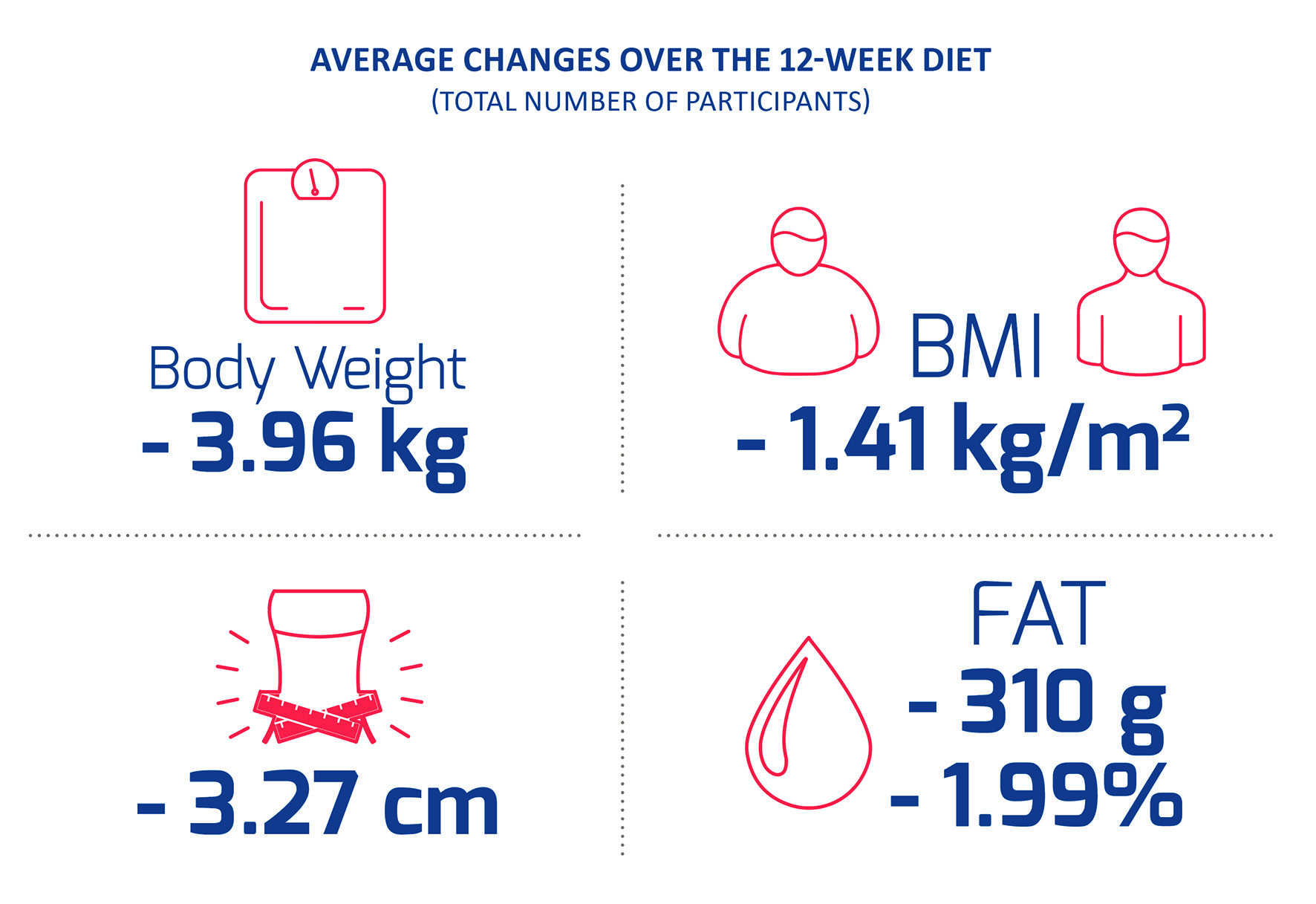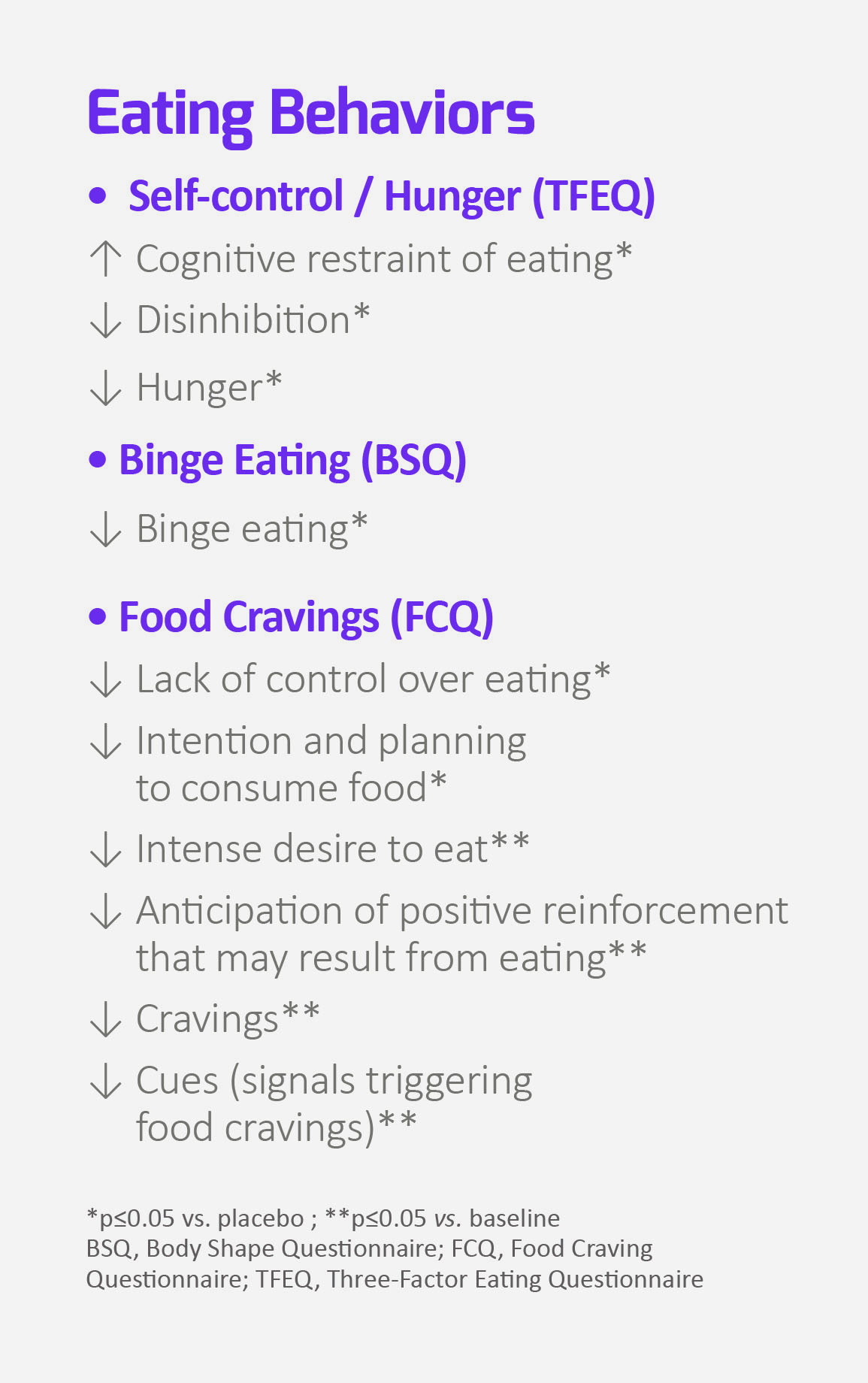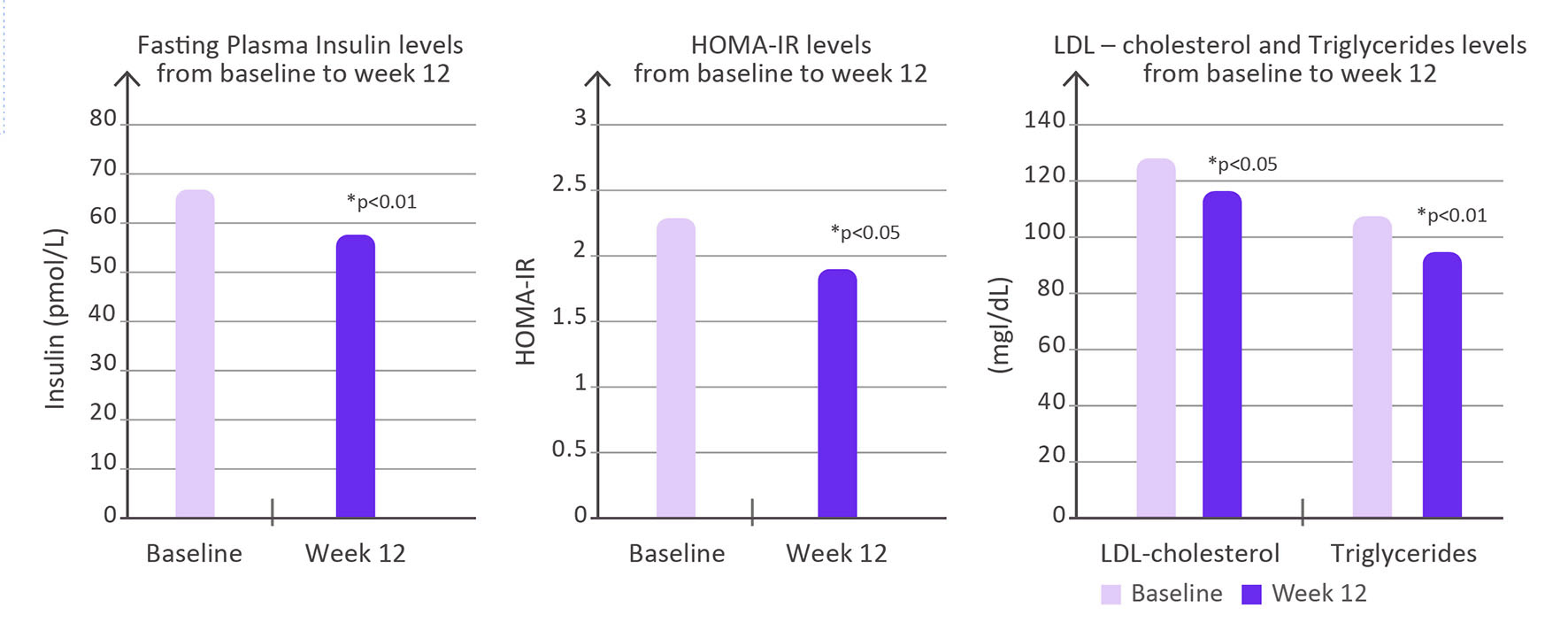
For a long time, consumers have associated metabolic health with a healthy weight, but it goes far beyond that. Metabolic health is not about looking good, it is about being healthy, and it involves having a healthy liver, intestinal tract, body’s fat stores, muscles, heart, and brain tissue, ensuring both quality of life and longevity.
Nowadays, and after the past two years, consumers have come to understand the importance of metabolic health and its role in maintaining overall health. As such, 37% of global consumers stated the COVID-19 pandemic made them more conscious of their weight and 31.9% of their cardiovascular health, highlighting consumers’ awareness on how important it is to keep the human machinery running well and metabolically healthy.
The Gut Microbiota and Metabolic Health
Metabolic health is assessed by looking at belly fat, blood sugar, blood pressure, cholesterol and triglycerides. When three out of these five factors are not in the healthy range, a person meets the criteria for metabolic syndrome. Scientific evidence indicates a strong link between the gut microbiota and metabolic health. And as far as gut microbiota is involved, probiotics can undoubtedly play a role. By protecting the gut barrier integrity, supporting the maintenance of a healthy microflora and the production of short-chain fatty acids (SCFAs), probiotics can help support metabolic health. These elements are essential in staying metabolically healthy as an impaired gut microflora can result in opportunistic bacteria passing the gut barrier and reaching systemic circulation and other organs, thereby modifying normal organ interactions and metabolism.
Moreover, SCFAs can bind to specific receptors on the gut barrier and induce the secretion of specific peptides, which contribute to increasing energy expenditure, reducing food intake, and improving glucose metabolism and insulin secretion. Probiotics have been shown to be able to produce SCFAs, which also could be in favor of metabolic health. Probiotics have also been demonstrated to ensure the proper functioning of the bile acid metabolism, which is key in the maintenance of healthy cholesterol levels, and more globally in the maintenance of metabolic health.
Finally, some probiotics have been shown to support the brain-gut axis. This psychobiotics capacity is of major interest for the modulation of the food reward system to support a healthy weight.
Probiotics to Support Your Weight Management Efforts
A high-fat, low-fiber diet, which is known to favor weight gain, can induce the loss of certain gut bacteria species, and the modification of gut functions that can impact metabolic health. Keeping a healthy weight can contribute to a healthy metabolism, and certain probiotics may be able to support weight management efforts
New Breakthrough Study: L. rhamnosus HA-114 improves eating and mood-related behaviors in adults with overweight during weight loss
L. rhamnosus HA-114 was recently studied in a clinical trial conducted on overweight adults on a diet. This strain was specifically selected among several strains for its ability to reduce fat accumulation in an in vivo model of Caenorhabditis elegans. Moreover, L. rhamnosus HA-114 was shown to have a strong potential in the brain-gut axis area thanks to two animal studies in a mouse model of Parkinson’s disease [Xie, 2020], amyotrophic lateral sclerosis (AML) and Huntington’s disease [Labarre, 2021 – Submitted].
In a randomized, double-blind, placebo-controlled clinical trial, 152 overweight, otherwise healthy, adults starting a diet were recruited [Choi, 2021 – Submitted]. While on a personalized energy-restricted diet (-500 kcal per day), participants were randomized to either take 10 B CFU/day of L. rhamnosus HA-114 or placebo. Physiological and psychological parameters and eating behavior using validated questionnaires were measured at baseline and at 12 weeks. The reduced calorie nutritional intervention resulted in significant changes in body composition (body mass index (BMI), waist circumference, fat mass and body mass percentage) in both groups without significant differences between groups.


A reduce calorie diet comes with its challenges and resisting to the temptation of unhealthy snacking is hard: indeed 45.7% of global consumers state their main challenge in losing weight is that they enjoy treats and moments of indulgence. Moreover, a diet comes with the stress of failure, and knowing that occasional stress can stimulate weight gain by increasing appetite and cravings, it is important to be able to keep mental health at peace.
L. rhamnosus HA-114 is the new probiotic strain to support weight management efforts. In the probiotic group, eating behaviors such as binge eating, lack of control over eating or cravings significantly reduced over the course of the study.
In addition, feelings of stress, anxiety and depression improved significantly compared to baseline.

In short, L. rhamnosus HA-114 intake improved the mood of participants during their diet, helping them resist their cravings while supporting psychological well-being. These breakthrough results demonstrate L. rhamnosus HA-114’s positive impact on behavior by promoting a well-balanced brain-gut axis communication to support weight management efforts.
Furthermore, L. rhamnosus HA-114 significantly influenced plasma insulin, homeostatic model assessment of insulin resistance (HOMA-IR), low-density lipoprotein (LDL) cholesterol and triglycerides over the study period when compared with baseline, demonstrating the strain’s beneficial effects on the maintenance of a healthy metabolic profile in overweight participants while on a calorie restricted diet.

Probiotics for Healthy Cholesterol Levels
Cardiovascular health refers to the health of the heart and blood vessels. Cholesterol holds an essential role in cardiovascular health. Cholesterol is a molecule of great importance for many different biological functions, but excessive cholesterol buildup in the walls of arteries increases the risk of developing cardiovascular diseases. With the impact of COVID-19, cardiovascular health has gained a greater awareness among consumers, and 81.7% of global consumers recognize the link between cardiovascular health and overall health.
B. lactis LAFTI® B94, Bacillus subtilis Rosell®-179 and L. plantarum HA-119 for the Activation of Cholesterol Metabolism
The probiotic cholesterol reduction mechanism has been attributed to their bile salt hydrolase (BSH) activity that allows the deconjugation of bile acids. By increasing the deconjugation and modification of bile acids in the gut, probiotics may increase the excretion of bile acids in feces, therefore promoting the production of new bile acids in the liver from the cholesterol pool. This cycle could lead to the reduction of cholesterol in the body.
B. lactis LAFTI® B94, Bacillus subtilis Rosell®-179 and L. plantarum HA-119 are three strains of interest for the modulation of bile acids profiles due to their positive BSH activity tested in vitro.
In a double-blind, placebo-controlled crossover study [Culpepper, 2019], 103 healthy adults with a high waist circumference were randomized to take either B. lactis LAFTI® B94 or Bacillus subtilis Rosell®-179 or L. plantarum HA-119 or placebo for 12 weeks. In adults with a BMI ≥30, B. lactis LAFTI® B94 and Bacillus subtilis Rosell®-179 were demonstrated to significantly increase plasma deconjugated bile acids compared to the control group, and Bacillus subtilis Rosell®-179 also increased plasma secondary bile acids compared to placebo. These results demonstrate the potential of those strains in the activation of the cycling of bile salts involved in cholesterol metabolism, and more generally, in the maintenance of a healthy bile salt metabolism, essential in metabolic health.
L. helveticus LAFTI® L10 helps with cholesterol levels and antioxidant capacity in athletes
Another strain of interest is L. helveticus LAFTI® L10, which has been studied in athletes. In a double-blind, randomized placebo-controlled three-month trial [Michalickova, 2018], L. helveticus LAFTI® L10 was studied on cholesterol levels and oxidative stress in 22 elite athletes. At the end of the study, total cholesterol was shown to be significantly lower in the probiotic group compared to placebo (group effect: p<0.05), and LDL cholesterol decreased while HDL increased in the probiotic group compared to baseline (p<0.05).
Oxidative stress plays a central role in metabolic health as it can impact cardiovascular health, liver health and glycemic levels. In this clinical study, L. helveticus LAFTI® L10 significantly decreased markers of oxidative stress (advanced oxidation protein products (AOPP) and malondialdehyde (MDA)) compared to placebo (p<0.05), demonstrating once again its potential role in the maintenance of metabolic health.
Other strains of interest for healthy cholesterol levels
S. boulardii CNCM I-1079 was studied in a pilot trial on 11 healthy adults with elevated levels of cholesterol. Analysis of the serum at baseline, at Week 4 and at Week 8, showed remnant lipoprotein particles (RLP-P), an important marker of cardiovascular health, were significantly decreased by 15.5%, over the eight-week period (p=0.03).
IBacilluS+, a two-strains combination was studied in an mice model of obesity associated hyperlipidemia [Huang, 2021]. The eight-week intake induced significant changes in weight gain, BMI, Lee’s index (body length/body weight ratio), brown fat index, triglycerides, serum LDL and HDL, and hepatic total cholesterol and triglycerides compared to the placebo group (p<0.05). The probiotic intake also significantly reduced serum lipopolysaccharide (LPS) and serum total bile acids compared to the placebo group, and improved hepatic steatosis. IBacilluS+ is a promising candidate for further development in metabolic health.
Probiotics for liver health
Probiotics can also play a beneficial role in the gut-liver axis, especially for other uses than food and dietary supplements for Nonalcoholic fatty liver disease (NAFLD) and alcoholic liver disease (ALD). NAFLD comprises a spectrum of liver diseases related to excessive fat buildup in the liver due to other causes than alcohol and is thought to be induced by a high-fat diet which is associated with dysbiosis of gut microbiota. On the other hand, ALD comprises a spectrum of liver diseases that are a result of overconsuming alcohol. Like NAFLD, ALD involves fat buildup, inflammation and fibrosis in the liver that can lead to cirrhosis.
A placebo controlled clinical study conducted on 60 adults with NAFLD [Yang, 2012], IBacilluS+ was administered to participants as an adjunct treatment to a liver drug. At the end of the study, an improvement in the gut flora was seen that correlated with a decrease in serum lipopolysaccharide (LPS) levels. A significant decrease of serum interleukin-6 (IL-6) and tumor necrosis factor-alpha (TNF-α) compared to baseline levels (p<0.01) was seen, while these changes were not seen in the liver drug treatment alone. A significant decrease of alanine aminotransferase (ALT) levels was also seen (p<0.01), demonstrating an improvement in liver cell health.
Other clinical studies conducted on children with obesity associated NAFLD using other Lallemand Health Solutions probiotic combinations showed promising results in the management of this highly prevalent liver disease.
Lacidofil®, a two-strains combination has been studied in two in vivo studies on mice models of ALD [Bang, 2014; Hong, 2015]. A clinical study [Suk, 2017] was conducted on 101 patients with ALD. Lacidofil® or placebo were taken for seven days while participants were abstaining from alcohol. ALT levels significantly improved (p=0.049), as well as Child-Pugh scores (p<0.001) in the Lacidofil® group compared to baseline. Patients in the placebo group had a significant increase in LPS concentration, while this increase was not seen in the probiotic group. Lacidofil® intake also increased gut microbiota diversity and decreased gram-negative bacteria at the end of the study.
Other clinical studies conducted on alcoholic populations were conduced with different Lallemand Health Solutions’ probiotic combinations.
About Lallemand Health Solutions. Quality Probiotics. Complete Solutions.
Founded in 1934, Lallemand Health Solutions is a vertically integrated probiotic manufacturer specializing in the research, development, and manufacturing of ready-to-market and expert in custom probiotic formulations. Its products target specific populations and health segments, including gut health, natural defenses, women’s health, mental health, skin health, metabolic health, oral health, and sport. Probiotics are produced in cutting-edge plants certified to the highest quality standards. More than 600 probiotic formulas are currently marketed in over 60 countries across five continents.
Visit Lallemand Health Solutions’ website to learn more and to download the Metabolic Health white paper here https://lallemand-health-solutions.com/en/probiotics-for-metabolic-health/
Contact us at healthsolutions@lallemand.com


